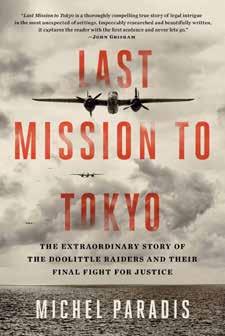effect, do not make a case for anarchism. She has some sympathy with the effort to use law to “order the world.” Or, at least she identifies with efforts to reclaim valuable materials from those efforts. Grand leaders making grand law may indeed be sending their messages into the void, but those messages in time return, often in ways that would have surprised (and perhaps dismayed) the original authors. They are reclaimed at the street level. The grand statements get into the hands of not-so-grand people and encourage and become rallying-points for resistance to oppression. Yes, Pirie says in her concluding chapter, “Hammurabi was a ruthless warlord who wanted to bequeath a benign image for posterity,” and others who have used much the same tone since his day have been birds of the same feather. But, she adds, “once laws set out a vision that people believe in, they can also be used against any power-holder who tries to ignore them. This is what gives law its ability to both legitimate and limit power.” Much may be said about the note of optimism there. But I will do none of it. I have set out the broad arc of the argument of this book. Like the oft-cited arc of the universe, it bends toward justice, though it takes its time. This book is worthy of study and contemplation, both of its particulars and in its themes. Its ambition, and much of its execution, is worthy of something more: admiration. Christopher Faille has written on a variety of legal, regulatory, and financial issues for decades. He was an early reporter with Lipper HedgeWorld and has contributed to Forbes, Hedge Fund Law Report, and Alternatives Watch.
34 • THE FEDERAL LAWYER • May/June 2022
Last Mission to Tokyo: The Extraordinary Story of the Doolittle Raiders and Their Final Fight for Justice By Michel Paradis Simon & Schuster 2020 480 pages, $28.00
Reviewed by Jon M. Sands
“How do you tell a man he would be killed tomorrow?” Last Mission to Tokyo asks this question twice: at the start and toward the end. The question, although asked in the same place, Shanghai, was asked four years apart—in 1942 and again in 1946, in two different courtrooms, by two different military justice officers, one Japanese and one American. The question frames this remarkable account of two war crime trials—first, the Japanese military trials of eight American Doolittle airmen captured after the raid in Tokyo, and second, the U.S. military trials of four Japanese officers charged with executing three American airmen. The first trial lasted an hour, and the second trial lasted 17 days. Last Mission to Tokyo recounts the verdicts and itself delivers a definitive historical verdict. Michel Paradis’s book misleads only in its title. One thinks it is another history of Lt. Colonel James Doolittle’s raid on Tokyo on April 14, 1942, a daring long-distance bombing in the aftermath of Pearl Harbor. But it is much more. The raid, which did
scant damage, became a propaganda victory for the United States and proved highly embarrassing to Japan. The book becomes an account and a deliberation of vengeance, what passes for justice in each court, and what constitutes fairness to enemy combatants. We do not need another twice-told tale of the raid, as brave as it was; we do need this evenhanded recounting of the role that trials play in the historical record. Paradis, a lawyer, scholar, and pundit, served on the U.S. Department of Defense Military Commissions Defense Organization, dealing with court cases arising from Guantánamo Bay after Sept. 11, 2001. Full disclosure: I am part of a defense team for a defendant in Guantánamo charged before the Military Commissions, but I don’t know Paradis. Paradis brings a sensitivity to the varied reasons for such tribunals, the many motivations of governments and various institutions, the roles of counsel and judges, and the human stories of the participants. We know of Doolittle’s raid as brave and sacrificial, launched from an aircraft carrier that was in harm’s way, with Tokyo barely within the range of the bombers. We know how the bombing occurred and of the explicit instructions to target military installations rather than civilians. (The Pacific campaign eventually culminated in firebombing air raids on Japanese cities.) Paradis describes the view of the Japanese populace, which was shocked and angered by their civilian casualties, which included children in school. It was the first-ever successful foreign attack on the homeland. The military, which controlled the government and country, reacted with fury. When two bombers in the Doolittle raid, on fire, crashed in Japanese-held China, and the airmen were captured, vengeance was forthcoming. The airmen were starved, beaten, and tortured. Japan quickly passed the Enemy Airmen’s Act, which made bombing raiders against Japanese-held territories and Japan itself criminal acts. Orders from on high were to try and execute attacking airmen. So much for the laws regarding prisoners of war. The airmen’s trials were held in Shanghai. They were show trials, with the proceedings not translated, no real defense permitted to be raised, and the verdict foregone: death. In a show of mercy, five airmen were spared, but three were chosen for execution. They were William Farrow, Dean Hallmark, and continued on page 36







